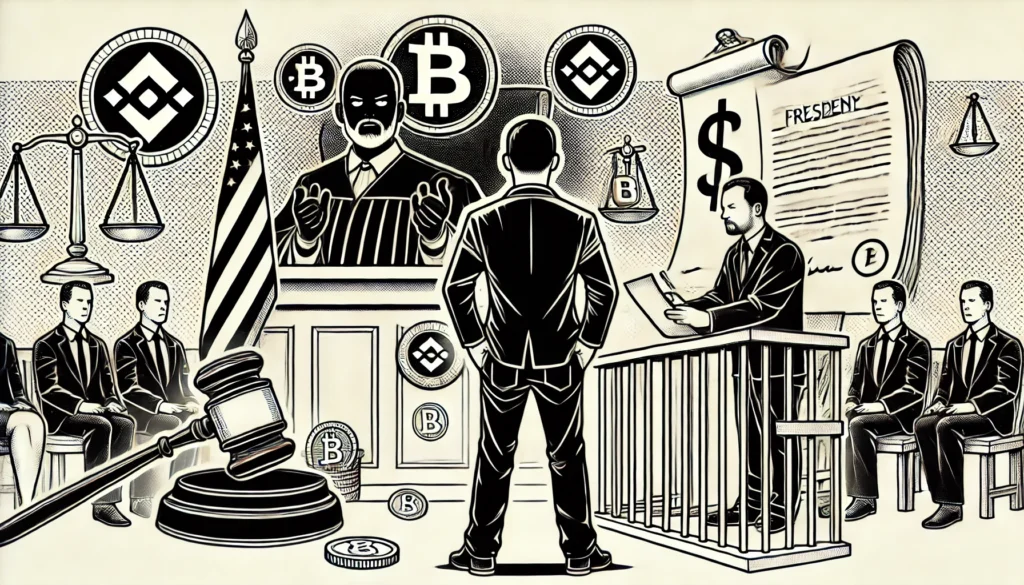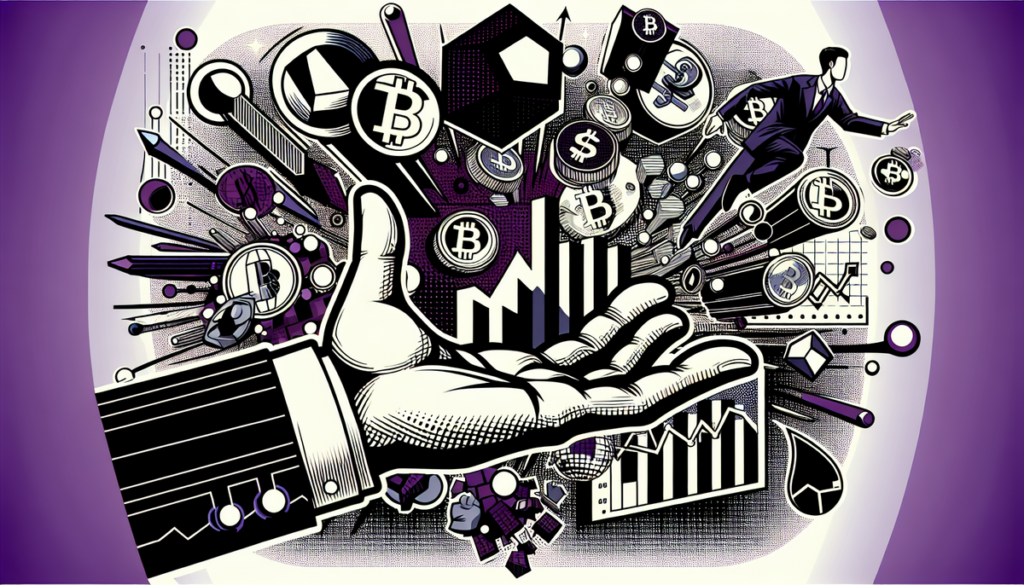Binance CEO’s Felony, Prison Term, and Potential Presidential Pardon

The cryptocurrency world has found itself at the center of a significant controversy involving Changpeng Zhao, the CEO of Binance. Accusations of legal infractions and the potential fallout, including a possible prison term, have dominated discussions both inside and outside the crypto community. As speculation rises that former U.S. President Donald Trump might offer a presidential pardon to Zhao, the case has drawn both intrigue and polarized opinions.
The Legal Challenges Facing Binance CEO Changpeng Zhao
Changpeng Zhao, often referred to as CZ, has long been a prominent figure in the crypto industry. His leadership at Binance, the world’s largest cryptocurrency trading platform by trading volume, elevated him to billionaire status. However, Zhao’s reputation has taken a hit after reports emerged linking him to potential legal violations which could result in severe criminal consequences.
According to [Cointelegraph](https://cointelegraph.com/news/changpeng-zhao-binance-pardon-donald-trump?utm_source=rss_feed&utm_medium=rss&utm_campaign=rss_partner_inbound), Zhao’s alleged infractions involve violations of U.S. financial laws. Binance, as an entity, has also been scrutinized for accusations of facilitating illegal transactions, bypassing regulatory requirements in certain jurisdictions, and not enforcing adequate Anti-Money Laundering (AML) measures. These claims could mean not only significant legal penalties for Binance as a company, but personal criminal charges and a possible felony conviction for CZ.
This isn’t the first time Binance’s legal practices have been questioned. Over the years, various countries have raised issues concerning Binance’s operations, citing regulatory breaches and inadequate compliance mechanisms. This latest controversy, however, brings a new level of gravity to both Zhao and Binance’s legal troubles.
The Possibility of a Prison Term
If the charges against Changpeng Zhao lead to a conviction, he may face a substantial prison term. U.S. laws dealing with financial crimes are stringent, and alleged violations of securities laws, money laundering statutes, or fraud can carry heavy penalties, including imprisonment. Experts argue that even the most well-connected industry figures cannot escape the ramifications of breaking U.S. federal laws, particularly when it concerns financial markets.
Meanwhile, the cryptocurrency community has shown a variety of reactions to Zhao’s legal concerns. Some have rallied behind him, applauding CZ for innovating the digital currency landscape. Others argue that his alleged actions have jeopardized the legitimacy of the entire industry, lending further ammunition to critics of decentralized finance and blockchain technology.
Could a Presidential Pardon Come Into Play?
Amid growing speculation around Zhao’s potential legal consequences, an intriguing narrative has emerged: Could former President Donald Trump issue a presidential pardon for CZ if he were to return to the U.S. presidency in the 2024 election? This possibility has sparked significant debate within and beyond the crypto world.
Presidential pardons are an authority granted to the President of the United States under the Constitution. These have historically been used for a wide range of cases, including politically charged or controversial legal matters. Trump, known for his unconventional approach during his presidency, issued several high-profile pardons that broke political and societal norms, such as pardoning Steve Bannon and exonerating individuals implicated in financial crimes. Some supporters of Zhao see a presidential pardon as a potential saving grace, but critics question whether such an act would undermine the government’s attempts to hold powerful individuals accountable for financial misconduct.
Although there is no confirmation that Trump is even considering such an action, the possibility remains alive in public discourse. CZ himself has not commented on the speculation, maintaining a low profile as his legal troubles unfold.
The Implications of a Presidential Pardon
While the idea of a pardon seems far-fetched to some, its implications would be massive. On one hand, a presidential pardon could signal leniency toward the emerging crypto industry, potentially encouraging investment and fostering growth in decentralization technologies. On the other hand, critics argue this could set a troubling precedent, suggesting that influential figures within the crypto space can evade serious consequences for breaching financial and legal boundaries.
For Zhao, a pardon might offer a second chance to restore his reputation and secure Binance’s position as an industry leader. Yet, the extent to which such a pardon could damage Binance’s public perception—and the perception of crypto trading at large—remains a pressing concern.
The Future of Binance and the Cryptocurrency Industry
The outcome of Changpeng Zhao’s legal tribulations is poised to have far-reaching implications for Binance and the broader cryptocurrency industry. If Zhao is found guilty of felonies, the repercussions could affect Binance’s global operations. Moreover, it might invite stricter global regulations on crypto exchanges, as governments worldwide seek to close loopholes that allow unlawful practices.
Binance has repeatedly emphasized its commitment to working with regulators and improving its compliance framework. Despite these assurances, criticisms continue to mount as legal authorities intensify their investigations. This ongoing case might serve as a wake-up call for other cryptocurrency platforms, highlighting the urgent need to prioritize transparency and adherence to legal standards.
The questions surrounding Zhao’s situation also highlight the broader governance challenges within the cryptocurrency ecosystem. For the industry to maintain its growth and mainstream acceptance, it must proactively address issues of accountability, transparency, and compliance.
For more insights on cryptocurrency trends and the evolving regulatory landscape, visit MetaCandle.
“`







Responses